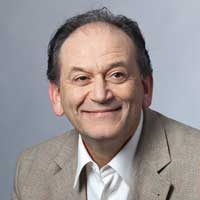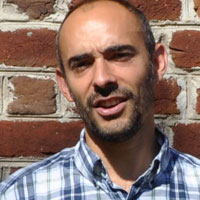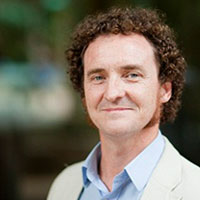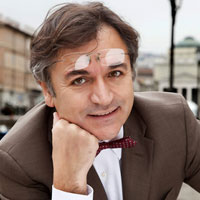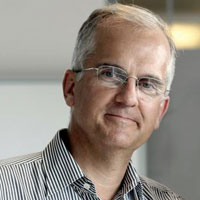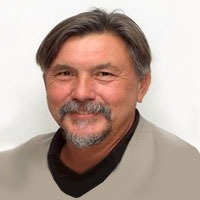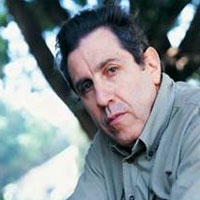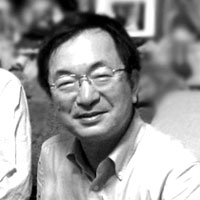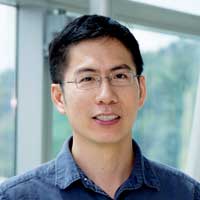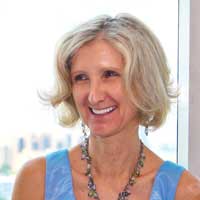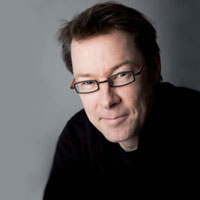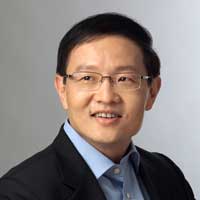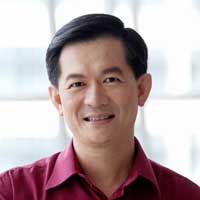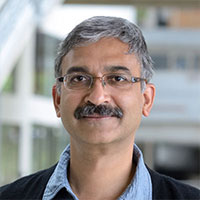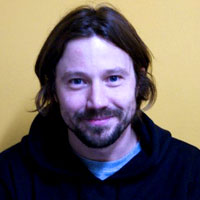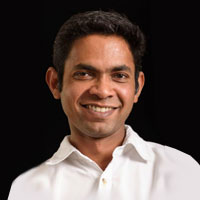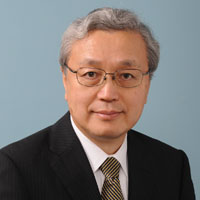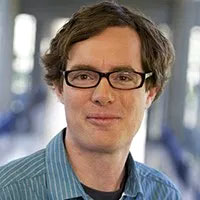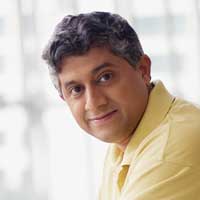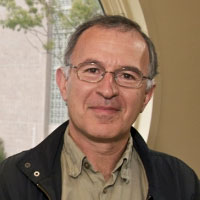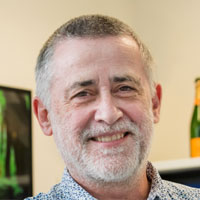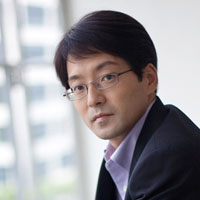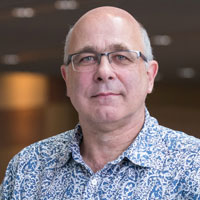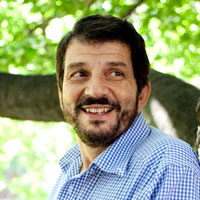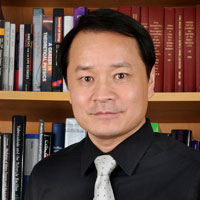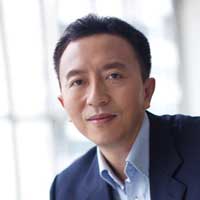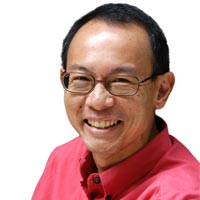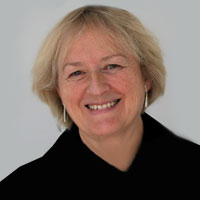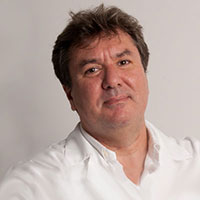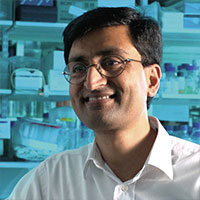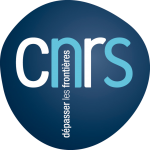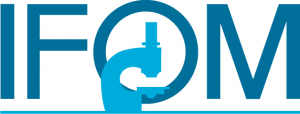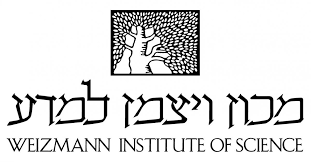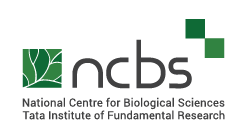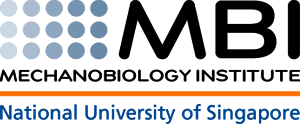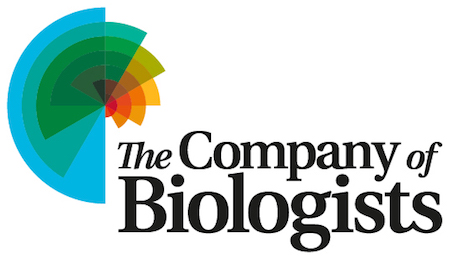Mechanobiology Institute, National University of Singapore
10th Anniversary Conference, 7-10 Nov 2018, Singapore
MECHANOBIOLOGY INSTITUTE’S 10TH ANNIVERSARY CONFERENCE
Mechanobiology after 10 Years: The Promise of Mechanomedicine
The field of mechanobiology has grown significantly in the last ten years and mechanosensing and mechanotransduction are now common elements in the analysis of most cellular functions.
We invite researchers, clinicians and students interested in understanding how targeted mechanical stimuli can alter biochemical processes, to join us as we continue to define areas where the understanding of mechanobiology can dramatically alter our approaches to fundamental biological problems in cancer, cardiovascular disease, and the problems associated with aging.
ORGANISED BY
Mechanobiology Institute, National University of Singapore (MBI)
IN PARTNERSHIP WITH
Centre National de la Recherche Scientifique (CNRS), France
The FIRC Institute of Molecular Oncology, Italy
The National Centre for Biological Sciences, India
The Weizmann Institute of Science, Israel
Speakers
Invited Speakers
Alexander Bershadsky
Mechanobiology Institute, NUS, Singapore
Nicolas Biais
The City University of New York, USA
Vania Braga
Imperial College, London, UK
Justin Cooper-White
The University of Queensland, Australia
Giannino Del Sal
University of Trieste, Italy
Sandrine Etienne-Manneville
Institute Pasteur, France
Julio M Fernández
Columbia University, USA
Elaine Fuchs
The Rockefeller University, USA
Hermann Gaub
Ludwig Maximilians University of Munich, Germany
Benjamin Geiger
Weizmann Institute of Science, Israel
Sally Horne-Badovinac
The University of Chicago, USA
Shin’ichi Ishiwata
Waseda University, Japan
Johanna Ivaska
Turku Centre of Biotechnology, Finland
Pakorn Tony Kanchanawong
Mechanobiology Institute, NUS, Singapore
Linda J Kenney
Mechanobiology Institute, NUS, Singapore
Pekka Lappalainen
University of Helsinki, Finland
Lim Chwee Teck
Mechanobiology Institute, NUS, Singapore
Low Boon Chuan
Mechanobiology Institute, NUS, Singapore
Tatiana Marquez-Lago
University of Alabama at Birmingham, USA
Satyajit Mayor
National Centre for Biological Sciences, Bangalore, India
Denise Montell
University of California, Santa Barbara, USA
Serge Mostowy
Imperial College, UK
Thomas Pucadyil
IISER-Pune, India
Srikala Raghavan
Institute for Stem Cell Biology & Regenerative Medicine (inStem), India
Masaki Sano
The University of Tokyo, Japan
Victoria Sanz-Moreno
Queen Mary University of London, UK
Timothy Saunders
Mechanobiology Institute, NUS, Singapore
Frank Schnorrer
Institute for Developmental Biology, CNRS, France
Mahak Sharma
IISER-Mohali, India
Michael Sheetz
Mechanobiology Institute, NUS, Singapore
G V Shivashankar
Mechanobiology Institute, NUS, Singapore
Boris Shraiman
University of California, Santa Barbara, USA
Joachim Spatz
Max Planck Institute for Medical Research, Germany
Richard Treisman
The Francis Crick Institute, UK
Julie Theriot
University of Washington, USA
Yusuke Toyama
Mechanobiology Institute, NUS, Singapore
Virgile Viasnoff
Mechanobiology Institute, NUS, Singapore and CNRS, France
Michael Way
The Francis Crick Institute, UK
David Weitz
Harvard University, USA
Sunney Xie
Peking University, China
Yan Jie
Mechanobiology Institute, NUS, Singapore
Alpha Yap
The University of Queensland, Australia
Programme
Mechanobiology after 10 years: The promise of mechanomedicine
7-10 November, 2018
Shaw Foundation Alumni House
National University of Singapore, Singapore
Day 1: Wednesday, 07 November 2018
| 8.00am | Registration |
| 8.45am | Audience to be seated |
| 8.50am | Opening Remarks by Tan Eng Chye, President, National University of Singapore |
| 8.55am | Welcome Address by Michael Sheetz, Director, Mechanobiology Institute, Singapore |
Session I: Mechanics of CancerChairperson: Rishita Changede, Mechanobiology Institute, Singapore |
|
| 9.00am – 9.30am | Michael Sheetz, Mechanobiology Institute, Singapore The Transformed Cancer State: Rigidity Insensitive but Death by Stretch |
| 9.30am – 10.00am | Johanna Ivaska, Turku Centre for Biotechnology, University of Turku, Finland Mechanosensitive regulation of cancer and pluripotency |
| 10.00am – 10.30am | Victoria Sanz Moreno, Queen Mary University of London, UK Targeting cytoskeletal dynamics as a therapeutic approach in cancer |
| 10.30am – 11.00am | Coffee Break |
| 11.00am – 11.30am | Giannino Del Sal, University of Trieste & IFOM, Italy The interplay between mechano-signalling and the mevalonate pathway: the case of mutant p53 |
| 11.30am – 12.00pm | Low Boon Chuan, Mechanobiology Institute, Singapore BCH domain as a versatile scaffold protein module and p(l)acemaker in GTPases, kinases and metabolic signalling |
| 12.00pm – 12.15pm | Kristina Havas, IFOM -FIRC Institute of Molecular Oncology, Italy The many roles of Metabolic Dysregulation in Breast Cancer Progression |
| 12.15pm – 12.30pm | Jean-Francois Rupprecht, Mechanobiology Institute, Singapore Myosin Motors in Rigidity Sensing Contractions |
| 12.30pm – 1:15pm | Lightning talks – Group I – Presentations by Poster presenters |
| 1.15pm – 2.00pm | Lunch Break / Poster Session |
Session II: Cell-cell InteractionsChairperson: Ronen Zaidel-Bar, Tel Aviv University Medical School, Israel & Mechanobiology Institute, Singapore |
|
| 2.00pm – 2.30pm | Alpha Yap, University of Queensland, Australia Mechanotransduction at adherens junctions: its function and dysfunction in epithelial homeostasis |
| 2.30pm – 3.00pm | Deborah Leckband, University of Illinois at Urbana-Champaign, USA Intercellular Force Transduction |
| 3.00pm – 3.30pm | Vania Braga, Imperial College, London, UK Cell confinement impacts on cortical elasticity, configuration and dynamics of junctions |
| 3.30pm – 4.00pm | Coffee Break |
| 4.00pm – 4.30pm | Virgile Viasnoff, Mechanobiology Institute, Singapore & CNRS, France Inducing apico basal polarity one cell at a time |
| 4.30pm – 5.00pm | Sandrine Etienne-Manneville, Institut Pasteur, France Microtubules in mechanosensitivity during cell migration |
| 5.00pm – 5.30pm | Lim Chwee Teck, Mechanobiology Institute, Singapore Modes of Collective Cell Migration on 2- and 3-D Substrata |
| 5.30pm – 5.45pm | Tetsuya Hiraiwa, The University of Tokyo, Japan Collective cell movement driven by Cell-cell junction shrinkage combined with Chirality |
| 5.45pm – 6:00 pm | Elisabeth Labruyere, Institut Pasteur, France A mechano-imaging method to quantify intracellular biophysics |
| 6.00pm – 6:45 pm | Lightning talks – Group II Presentations by Poster Presenters |
| 6.45pm – 8.45pm | Light Dinner, Networking & Poster Session |
Day 2: Thursday, 08 November 2018
| 8.50am | Audience to be seated |
Session III: Cellular Architecture at Different ScalesChairperson: Yee Han Tee, Mechanobiology Institute, Singapore |
|
| 9.00am – 9.30am | Michael Way, The Francis Crick Institute, UK New Levels of complexity in Arp2/3 driven actin polymerization |
| 9.30am – 10.00am | Benjamin Geiger, Weizmann Institute of Science, Israel Environmental Regulation of Invadopodia Formation and Function |
| 10.00am – 10.30am | Satyajit Mayor, National Centre for Biological Sciences, India Integrin receptor signalling results in functional mechano-chemically gated lipid microenvironments driven by the acto-myosin based nanoclusters |
| 10.30am – 11.00am | Coffee Break |
| 11.00am – 11.30am | Alexander Bershadsky, Mechanobiology Institute, Singapore Integrin-mediated Adhesions at the Crossroads between Microtubules and the Actomyosin Cytoskeleton |
| 11.30pm – 12.00pm | David Weitz, Harvard University, USA Mechanics of reconstituted interpenetrating biopolymer networks |
| 12.00pm – 12.30pm | Sunney Xie, Peking University, China Single Cell Genomics: When Stochasticity Meets Precision |
| 12.30pm – 1.15pm | Lightning talks – Group III – Presentations by Poster Presenters |
| 1.15pm – 2.00pm | Lunch Break / Poster Session |
Session IV: PathogenesisChairperson: Khin Khine Mon, Mechanobiology Institute, Singapore |
|
| 2.00pm – 2.30pm | Julie Theriot, University of Washington, USA Macrophages chew before swallowing: Deformable microparticle force reporters reveal the complex cellular forces generated during phagocytosis |
| 2.30pm – 3.00pm | Linda J Kenney, Mechanobiology Institute, Singapore The pearling transition provides evidence of force-driven endosomal tubulation during Salmonella infection |
| 3.00pm – 3.30 pm | Mahak Sharma, IISER-Mohali, India Lyso(h)ome: Salmonella residence for replication |
| 3.30pm – 4.00pm | Coffee Break |
| 4.00pm – 4.30pm | Serge Mostowy, Imperial College, London Use of the cytoskeleton to control Shigella infection |
| 4.30pm – 5.00pm | Nicolas Biais, City University of New York, USA Superheroes of the Human Microbiota and Beyond: an introduction to Mechano-Micro-Biology |
| 5.00pm – 5.15pm | Stuti Desai, Mechanobiology Institute, Singapore Salmonella biofilms provide an adaptive advantage in the persistently infected heterologous host Caenorhabditis elegans |
Day 3: Friday, 09 November 2018
| 8.50am | Audience to be seated |
Session V: Developmental MechanicsChairperson: Prabhat Tiwari, Mechanobiology Institute, Singapore |
|
| 9.00am – 9.30am | Yusuke Toyama, Mechanobiology Institute, Singapore Mechanical impact of apoptosis in tissue homeostasis |
| 9.30am – 10:00am | Denise Montell, University of California, Santa Barbara, USA Making and Breaking Epithelial Connections |
| 10.00am- 10.30am | Boris Shraiman, University of California, Santa Barbara, USA Global View of Morphogenetic Flow in Fly Embryo |
| 10.30am – 11.00am | Coffee Break |
| 11.00am – 11.30am | Frank Schnorrer, CNRS, France The Biomechanics of Sarcomere Morphogenesis |
| 11.30am – 12.00pm | Timothy Saunders, Mechanobiology Institute, Singapore Selective Filopodia Adhesion Ensures Robust Cell Matching in the Drosophila Heart |
| 12.00 pm – 12.15pm | Nils Gauthier, IFOM -FIRC Institute of Molecular Oncology, Italy Membrane-cytoskeleton mechanical feedback mediated by myosin-I controls phagocytic efficiency |
| 12.15pm – 12.30pm | Yashuhiro Sawada, Department of Clinical Research, National Rehabilitation Center for Persons with Disabilities, Japan Local Cyclical Compression Modulates Macrophage Function In Situ and Alleviates Immobilization-Induced Muscle Atrophy |
| 12.30pm – 2.00pm | Lunch Break / Poster Session |
Session VI: Transcription Regulation & Stem-cell BiologyChairperson: Bryant Lee Doss, Mechanobiology Institute, Singapore |
|
| 2.00pm – 2.30pm | G.V.Shivashankar, Mechanobiology Institute, Singapore & IFOM, Italy Mechanogenomic Code for Nuclear Reprogramming |
| 2.30pm – 3.00pm | Elaine Fuchs, The Rockefeller University, USA Coping with Stress: How Stem Cells Protect Themselves During Injury, Inflammation and Niche Perturbations |
| 3.00pm – 3.30pm | Richard Treisman, The Francis Crick Institute, UK G-actin as a signalling molecule |
| 3.30pm – 4.00pm | Coffee Break |
| 4.00pm – 4.30pm | Justin Cooper-White, University of Queensland, Australia Unravelling the impact of local force transmission on human stem cell fate choice and exploiting targeted delivery of oligonucleotides to regain control of it! |
| 4.30pm – 5.00pm | Srikala Raghavan, Institute for Stem Cell Biology & Regenerative Medicine, India Role of Mechanotransduction in Maintaining Stem Cell Quiescence in Mouse Skin |
| 5.00pm – 5.30pm | Pakorn (Tony) Kanchanowong, Mechanobiology Institute, Singapore Probing the actin cortex of embryonic stem cells by super-resolution microscopy |
| 5.30m – 5.45pm | Evelyn Yim, University of Waterloo, Canada Engineering cell niche with biomaterials topographies for stem cell differentiation |
| 5.45pm – 6.00pm | Yongdae Shin, Seoul National University, South Korea Optogenetic control of intracellular phase separation |
| 6.30pm – 9.00pm | Conference Banquet (Kent Ridge Guild House, National University of Singapore) |
Day 4: Saturday, 10 November 2018
| 8.50am | Audience to be seated |
Session VII: Single Molecule BiophysicsChairperson: Artem Yefremov, Mechanobiology Institute, Singapore |
|
| 9.00am – 9.30am | James R Sellers, National Institutes of Health, USA Mechanical and filament assembly properties of nonmuscle myosin 2 |
| 9.30am – 10.00am | Hermann Gaub, University of Munich, Germany Molecular Mechanisms of Extreme Mechanostability in Protein Complexes |
| 10.00am – 10.30am | Julio Fernandez, University of Columbia, USA Titin folding powers muscle contraction |
| 10.30am – 11.00am | Coffee Break |
| 11.00am – 11.30am | Yan Jie, Mechanobiology Institute, Singapore Effects of force on the stability and interactions of mechanosensing proteins |
| 11.30am – 12.00pm | Shin’ichi Ishiwata, Waseda University, Japan Self-Organization of Actin Filaments in vitro and in an Artificial Cell System |
| 12.00 pm – 12.15pm | Raul Perez-Jimenez, CIC nanoGUNE, Spain Mechanical architecture and folding of E coli type 1 pilus domains |
| 12.15pm – 2.00pm | Lunch Break / Poster Session |
Session VIII: Cell Dynamics & MigrationChairperson: Sham Leilah Tlili, Mechanobiology Institute, Singapore |
|
| 2.00pm – 2.30pm | Sally Horne-Badovinac, University of Chicago, USA Feedback between planar cell-cell signaling and mechanical cues coordinates individual cell movements for collective migration |
| 2.30pm – 3.00pm | Pekka Lappalainen, University of Helsinki, Finland Assembly of mechanosensitive actomyosin bundles in migrating cells |
| 3.00pm – 3.15pm | Gautham Hari Narayana Sankara Narayana, Institut Jacques Monod, France Myosin-II Isoforms Play distinct roles on adherens junction dynamics |
| 3.15pm – 3.30pm | Chao Yang, Utrecht University, Netherlands Control of microtubule organization and dynamics by End Binding proteins |
| 3.30pm – 4.00pm | Coffee Break |
| 4.00pm – 4.30pm | Tatiana Marquez-Lago, University of Alabama at Birmingham, USA AI and modeling in cell biology, pathogenesis and mechanomedicine |
| 4.30pm – 5.00pm | Thomas Pucadyil, IISER-Pune, India Membrane Fission: Diverse Players, Convergent Mechanisms |
| 5.00pm – 5.30pm | Masaki Sano, Universal Biology Institute, University of Tokyo, Japan Extracting Dynamics from Data in Collective Cell Migration: Force and Tissue Dynamics |
| 5.30pm – 5.45pm | Isabela Corina Santos Fortunato, Instituto de Medicina Molecular, Portugal Unveiling mechanotransduction during collective cell migration? |
| 5.45pm – 6.00pm | Jian Liu, National Institutes of Health, USA Two distinct actin networks drive focal adhesion formation, traction oscillation and mechanosensing |
| 6.00pm | Closing Remarks |
| – End of Conference – | |
Registration and Fees
Registration
The conference is open to academics, post-doctoral fellows, graduate and undergraduate students interested in the diverse, interdisciplinary field of mechanobiology.
Please register your attendance using the online registration form. If you are interested in presenting a poster or short talk, please upload a 250 word abstract during the registration process.
Registration Deadlines (GMT +8)
| Early bird registration ends | 31 July 2018 |
| Abstract submission closes | 30 September 2018 |
Registration Fees
| Students/Postdocs | |
| Early bird registrations | S$200 |
| Late registrations | S$300 |
| On-site registrations | S$400 |
| Others (Academic) | |
| Early bird registrations | S$400 |
| Late registrations | S$500 |
| On-site registrations | S$600 |
| Others (Industry) | S$600 |
Please choose the correct category that describes your position on the registration form to be charged the correct registration fee.
Payment of registration fees: Payment of fees is to be made on the online registration payment portal by means of credit card only once you receive the notification that the payment portal is open.
Deadline: The last date for payment of registration fees for online registration is October 15, 2018.
Cancellation Policy
Notification of cancellation must be submitted by email to the conference organizers to conference-mail@nus.edu.sg.
| Cancellation made | Refund |
| Before September 30, 2018 | Registration less administration fee of S$100 |
| After September 30, 2018 | 50% of registration |
| After October 15, 2018 | Not refunded |
| No show | Not refunded |
Accommodation
Contracted Hotel
The Park Avenue Rochester, Singapore, which is close to the NUS campus, will be providing discounted rates for the conference participants.
Park Avenue Rochester, Singapore
Park Avenue Rochester
31 Rochester Drive
Singapore 138637
+6808 8600
www.parkavenuerochester.com
Method of Reservation
Please reserve your rooms directly with the hotel to secure a reservation. A credit card guarantee is required. Book your room here
Visa
Please ensure that you have a valid passport for travel and check with your local embassy for visa requirements. Please note that some countries require your passport to be valid for up to six months.
Nationals from a wide majority of countries do not require visas for social visits of a 30 day duration provided that they are in possession of recognized and valid travel documents, adequate funds and return tickets. Refer to this list of countries whose nationals require visa to travel to Singapore.
Should an official letter of invitation and V39A form be required for your visa, please send your request by email to mbi-conference@nus.edu.sg once the conference registration formalities are completed with the payment of registration fees.
If your visa is declined, refunds will be offered in line with our cancellation policy.
Venue
Shaw Foundation Alumni House
Shaw Foundation Alumni House, National University of Singapore
Shaw Foundation Alumni House
11 Kent Ridge Drive,
National University of Singapore
Singapore 119244
+65 6516 5775
oarconnect@nus.edu.sg
Things to See and Do in Singapore
Visiting Singapore
Gardens by the Bay
Opened in June 2012, Gardens by the Bay offers visitors a vibrant horticultural oasis of lush greenery and floral displays. Enter the Flower Dome and be inspired by thousands of magnificent flowers and plants from the Mediterranean and semi-arid subtropical regions in this cooled conservatory. Get awe-inspired by the botanical wonders of the tropical highlands in the Cloud Forest, where a spectacular waterfall and mountain cloaked in vegetation await you. Walk along the 22-metre high OCBC Skyway suspended from the iconic Supertrees, and admire the most ravishing scenic views of Marina Bay and Singapore’s Skyline.
18 Marina Gardens Drive, Singapore 018953
www.gardensbythebay.com.sg
Cooled Conservatories: 9.00am – 9.00pm daily, Outdoor Gardens: 5.00am – 2.00am daily, OCBC Skyway: 9.00am – 9.00pm daily
Cost depends on activities selected (refer to website for more details)
Dolphin Island
Dolphin Island offers a range of programmes that gives you the opportunity to interact with Indo-Pacific bottlenose dolphins and to learn about them. The unique programmes will inspire visitors to a deeper understanding of marine life, and to discover more about dolphins through “engagement learning”. The marine mammal trainers and hosts will share knowledge about dolphins, their habitats, diets, anatomies and migration patterns.
8 Sentosa Gateway, Sentosa Island, Singapore 098269
www.rwsentosa.com/en/attractions/dolphin-island
10.00am – 6.00pm daily
Cost depends on activities selected (refer to website for more details)
Singapore Zoo
Set in a rainforest environment, Singapore Zoo’s world-famous “Open Concept” offers the opportunity to experience and be inspired by the wonders of nature. Home to more than 2,400 specimens of over 300 species, 34 per cent of which are threatened, the Zoo has attained a strong reputation internationally for its conservation initiatives and breeding programmes.
80 Mandai Lake Road Singapore 729826
www.wrs.com.sg/en/singapore-zoo.html
8.30am – 6.00pm (Last entry at 5.30pm)
Adult: $35, Children: $23
Asian Civilization Musuem
The Asian Civilisations Museum is devoted to exploring the rich artistic heritage of Asia, especially the ancestral cultures of Singaporeans. Opened in 1997 and in its present building by the Singapore River since 2003, the museum traces its roots to the Raffles Museum, founded in the middle of the 19th century. ACM focuses on the many historical connections between the cultures of Asia, and between Asia and the world.
1 Empress Place, Singapore 179555
www.acm.org.sg
Daily: 10am to 7pm, Fridays: 10am to 9pm
Daily: $8, Friday evenings, 7-9PM only: $4
Singapore Botanic Gardens
The Singapore Botanic Gardens is a 158-year-old tropical garden occupying 82 hectares at the fringe of Singapore’s Orchard Road shopping district. It is one of three gardens, and the only tropical garden, to be honoured as a UNESCO World Heritage Site. Exhibits include the National Orchid Garden, Jacob Ballas Children’s Garden, Healing Garden, SBG Heritage Museum and the new Centre for Ethnobotany.
1 Cluny Rd, Singapore 259569
www.nparks.gov.sg/sbg
Hours vary by exhibit, see www.nparks.gov.sg/sbg/visit-us for more information.
Tickets $5/adult, Senior Citizen/Student $1, children (below 12 yrs old) Free
S.E.A. Aquarium
Enter and explore the marine realm of S.E.A. Aquarium, home to more than 100,000 marine animals of over 1,000 species, across 50 different habitats, each one as fascinating as the next. It’s an experience you won’t forget.
8 Sentosa Gateway, Sentosa Island, Singapore 098269
www.rwsentosa.com/en/attractions/sea-aquarium
10.00am – 6.00pm
Adult (Age 13-59) – $39, Child (Age 4-12) – $29, Senior (Age 60 and above) – $29
The Maritime Experiential Museum
Relive the glorious conquest of the seas, as you return to the Maritime Silk Route of eras past. Be transported through time in 15 thematic galleries, journey in the tailwinds of renowned seafarers, and even flee pirate invaders aboard a burning ship.
8 Sentosa Gateway, Sentosa Island, Singapore 098269
www.rwsentosa.com/en/attractions/the-maritime-experiential-museum/highlights
10.00am – 7.00pm
Adult – $16, Child – $10, Senior – $5
Jurong Bird Park
Asia’s largest bird park, offering a 20.2-hectare hillside haven for close to 3,500 birds across 400 species, of which 20 per cent are threatened. The bird park is famed for its large and immersive walk-in aviaries such as Lory Loft, Jungle Jewels and the recently revamped Waterfall Aviary. Other unique exhibits include Penguin Coast and Pelican Cove.
2 Jurong Hill, Singapore 628925
www.wrs.com.sg/en/jurong-bird-park.html
8.30am – 6.00pm (Last entry at 5.30pm)
Adult: $33, Children: $23

Cultural/Neighborhoods/Food
One of the best things about being in Singapore is undoubtedly the food. It is no secret that Singaporeans eat and drink with a passion. Singapore’s multi-cultural diversity is reflected in the variety of local cuisine it has to offer, from Chinese to Malay, Indian to Peranakan.
Organizers
Organizing Committee
Michael Sheetz, Conference Chair
Mechanobiology Institute, NUS
G V Shivashankar
Mechanobiology Institute, NUS
Alexander Bershadsky
Mechanobiology Institute, NUS
Linda J Kenney
Mechanobiology Institute, NUS
Lim Chwee Teck
Mechanobiology Institute, NUS
Birgit Lane
Skin Research Institute of Singapore, Singapore
Scientific Committee
Michael Sheetz, Conference Chair
Mechanobiology Institute, NUS
G V Shivashankar
Mechanobiology Institute, NUS
Alexander Bershadsky
Mechanobiology Institute, NUS
Linda J Kenney
Mechanobiology Institute, NUS
Lim Chwee Teck
Mechanobiology Institute, NUS
Birgit Lane
Skin Research Institute of Singapore, Singapore
Benjamin Geiger
Weizmann Institute, Israel
Marco Foiani
FIRC Institute of molecular Oncology, Italy
Satyajit Mayor
National Centre for Biological Science, India
Ashok Venkitaraman
Cambridge University, UK
Virgile Viasnoff
Mechanobiology Institute, NUS and CNRS, France
Administration
Latha K S, Conference Secretary
Supporting Organizations and Sponsors
The organizers would like to thank the following organizations and sponsors for their support of our symposium
Supporting Organizations
Centre National de la Recherche Scientifique (CNRS), France
Founded in 1939, The National Center for Scientific Research, or CNRS, is a public organization under the French Ministry of Education and Research. As the largest fundamental research organization in Europe, the CNRS carries out research in all fields of knowledge, through its ten institutes. With over 25,000 researchers and vast resource , international network and its foundation in basic science, the CNRS is one of the top partners in the world for collaboration in interdisciplinary science as well as collaborative efforts with industry. In 2014, MBI was pleased to enter an agreement with CNRS to establish the creation of a CNRS-NUS Joint Research Unit known as the BioMechanics of Cellular Contacts – UMI BMC2 based at MBI.
FIRC Institute of Molecular Oncology, Italy
Founded in 1998 by FIRC, IFOM is a cancer research institute focused on the study of cancer formation and development at molecular level, with a view to a rapid transfer of results from bench to bedside. Understanding cancer:The way to cure it, is the founding principle of research made in IFOM, the FIRC Institute of Molecular Oncology: a centre focusing on the study of the molecular mechanisms underlying tumors formation and development. Considering that in this scientific field, knowledge is the ultimate condition for medical care, the aim of IFOM is Molecular oncology at its best and researchers from all over the world pursue this one and only aim, in a multidisciplinary way and in different research fields: from molecular and cell biology to structural and computational biology, from genomics to proteomics, from molecular diagnostics to pharmacogenomics, from immunology to metabolomics. Cooperating with biomedical organizations as well as local institutions on one side, developing a network of strategic alliances with the most competitive international research centres on the other: doing research together is deeply embedded in IFOM DNA. Doing research together for IFOM, is meant to undertake joint projects aiming at accelerating the acquisition of new knowledge and its application.
Weizmann Institute of Science, Israel
Multidisciplinary research, at the interface between biology and physics was very active at the Weizmann Institute since the 90’s, leading to the establishment, in 2001, of a research center, namely, the Clore Center, which supported collaborative work between biologists, physicists, chemists and mathematicians, addressing such questions as cell adhesion and migration, membrane folding, mechanical stimulation of cells, tissue scaffolding, immune cell interactions and more. This multidisciplinary activity, which was rather rare at the time, proved to be highly inspiring and effective, leading to the development of many international collaborations in which Weizmann scientists, working in the broad field of mechanobiology, play key roles. Among the most prominent international collaborations, in this field, are those of WIS scientists and colleagues at the MBI in Singapore.
National Centre for Biological Sciences, India (NCBS)
National Centre for Biological Sciences(NCBS), Bangalore, India, is one of the premier institutes in India conducting cutting edge research in biology. It is a part of the Tata Institute of Fundamental Research (TIFR) under the Department of Atomic Energy of the Government of India. The mandate of NCBS is basic and interdisciplinary research in the frontier areas of biology in all major areas of the modern life sciences, including molecular and cell biology, developmental biology and genetics, neuroscience and behavior, ecology and evolution, theory and modeling of biological systems. The science at NCBS uses experimental and computational approaches in the study of molecules, cells and organisms and aim to understand biology at each of these levels to advance an integrated view of life processes. NCBS is also part of the Bangalore Bio-cluster and is providing an excellent seeding ground for the two other new institutes namely, the Institute for Stem Cell Research and Regenerative Medicine(inStem) and the Centre for Cellular and Molecular Platforms (C-CAMP). The vision of the cluster is to have an integrated multi-disciplinary and interactive bioscience and technology research enterprise, which will result in path-changing scientific discoveries, and the translation of these into tangible technological advances.
The Mechanobiology Institute, Singapore (MBI)
The MBI, headed by Prof Michael Sheetz, was established in 2009, through joint funding by the National Research Foundation and the Ministry of Education of Singapore, with the goal of creating a new cutting edge research center focusing on diverse aspects of mechanobiology. The primary goal of the MBI is to identify, measure and describe the roles of forces in driving cell motility and morphogenesis, and characterize the mechanisms underlying these processes at the molecular, cellular and tissue levels. Toward that goal, the MBI working to create a common international standard for defining these steps by developing powerful new computational models, experimental reagents, and tools for studying cells and tissues, either healthy or diseased. These ambitious objectives are addressed by interdisciplinary teams drawn from Singapore and international researchers in medicine, biology, chemistry, physics, engineering and computing.
MBI’s 10th Anniversary conference will attract approximately 300 participants from all parts of the world. This event provides an excellent opportunity for companies to showcase their latest products and technologies available to researchers. Interested sponsors may write to mbi-conference@nus.edu.sg.

